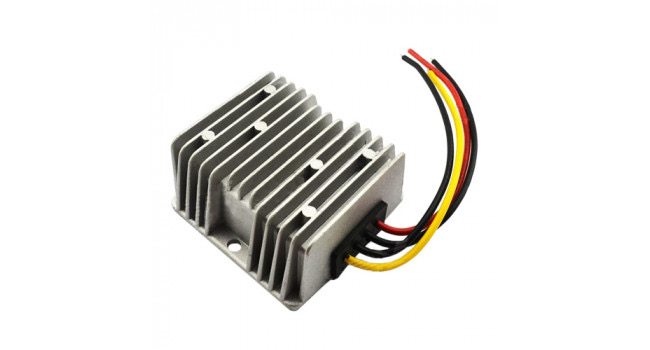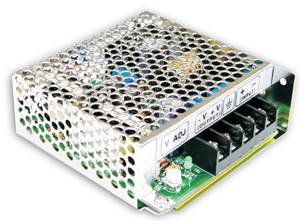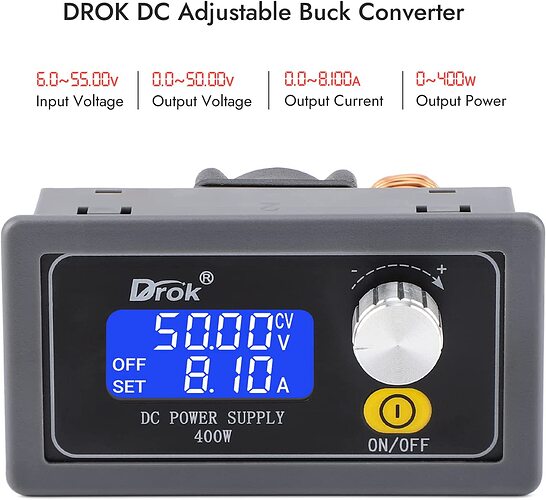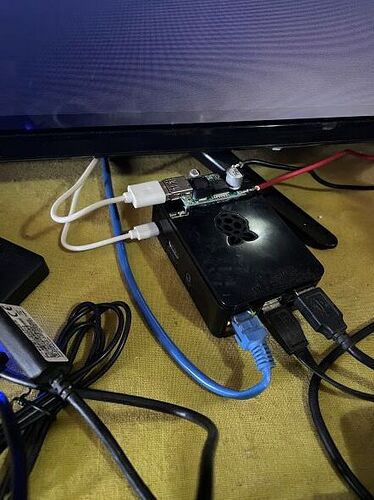I’m a dog with a bone on this subject. See this thread: IEEE P2030.10 standard for DC Micro grids for Rural and Remote Electricity Access Applications
Most electronic devices run on low voltage DC and so if you connect these devices to a battery they will work 100%.
The other issue is the efficiency of using DC over AC. The IEEE webinar explains how DC grids will make an appearance especially in poor countries that don’t have a national grid.
No matter what, we will see DC as a standard power source emerging (at different voltages to cater for the specific power requirements)
You could replace the 24V power supply with this if 25W is enough:
or this if 50W will do:
and then just keep the existing 12V and 5V converters.
Or this one with display and easy adjustment (panel mount): Other Electronics - Step Down Buck Converter 50V 5A 250W Panel Mount Display + Knob **LOCAL STOCK** for sale in Cape Town (ID:536122795)
I actually have one of those, but the maximum input voltage is 55V if I remember correctly.
The “48V” meanwell supplies linked above will work from 36 - 72V
That’s good to know…
Thanks, still going through found a few other MW with higher output for a little bit more money(you know as soon as you have something you just want to add more and more on to it, ie, I assume alot of us started with a small solar setup/ups and now trying and or running the whole house!)
This is so true! I have always wondered why the manne are selling off their existing system and buying the next bigger/better one.
PS: For me I’m slow on the uptake: I have just got Jaco to install my first 4 panels for my Geyeserwise Dual. So let’s see where I head off to…
Was great meeting you, always nice to put a face to the name…
If you still looking for a solution, I managed to find some old goodies in my box of goodies from many moons ago.
It’s a Texas Instruments power module, Excalibur PT4486A that can accept 36-75V input and output 6.5 to 17.5V at 8.5A.
Also have a PT4563A with a 35-75V in and 12v 2.5A out.
Let me know if you want either.
Or, this style buck regulator…. Very robust and available in various outputs. Runs from 60VDC for the 19V one, also greT for a Laptop supply.

See here
Or something like this, good for t5VDC inputm
Groetnis
My dc-dc buck converters arrived today. Ordered x4 from Banggood. Now to see if they will power my RPI 3.
Nice. I actually got my Pi up and running to on Friday with a step down converter. I’m using this one of Mantech site: https://www.mantech.co.za/ProductInfo.aspx?Item=372M0241

If you’re going to run a lot of 12V stuff and not just one small pi, then victron have a nice range of step down convertors for this (Orion range); thats what I’m using in my system, I’ve got the 48v->24v one as well as the 48v->12v one
I have the 48 to 12v version. Not installed yet 
I’ve got the 48/12-9, so the baby version of that (only half the wattage), has been running well for several years now.
And the 48/24-12 for 24v stuff.
Solid products as with most victron stuff.
Check this one as well.
I have one (USB and Micro USB, DC 20-72V) and hope will have the chance to run my r-pi GX out of it soon. Not so cheap, but the specs fit the requirements perfectly.
Max voltage on that is 60V. With some lithium batteries, the voltage can spike way higher than that, should the BMS disconnect the battery for some reason. I would opt for something with a 75V or higher max input voltage… which is what makes this such a difficult game.
There are 4 different types based on the input voltage range. As mentioned I ordered the one specified for 20-72V.
What is your battery voltage?

